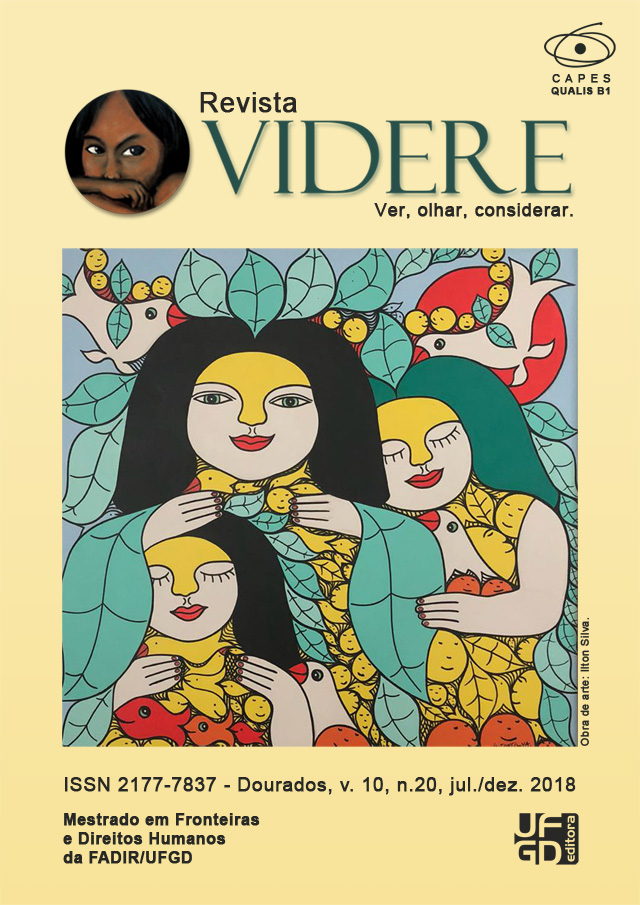Tutela jurídica dos arranjos produtivos locais e exploração da biodiversidade em Goiás: a proteção da propriedade intelectual como mecanismo de desenvolvimento das comunidades tradicionais
DOI:
https://doi.org/10.30612/videre.v10i20.7315Keywords:
Propriedade intelectual. Arranjos produtivos locais. Desenvolvimento sustentável. Comunidades tradicionais.Abstract
O presente estudo faz uma análise dos direitos de propriedade intelectual como instrumento para emancipação das comunidades tradicionais no Estado de Goiás, notadamente daquelas organizadas em Arranjos Produtivos Locais – APLs, explorando-se o conceito e o tratamento jurídico de tais comunidades. Trata-se de pesquisa bibliográfica e documental que adota como fundamento a teoria de Amartya Sen sobre o conceito de desenvolvimento, entendido como concretização da qualidade de vida humana. Vale-se, ainda, do estudo do conceito de APLs e de sua importância para o reconhecimento das comunidades locais, bem como se procede, sinteticamente, à análise do que são os direitos de propriedade intelectual. Ademais, busca-se demonstrar a importância da tutela jurídica dos saberes tradicionais para o autorreconhecimento das coletividades nativas e para a preservação da sociodiversidade brasileira.Downloads
Downloads
Published
How to Cite
Issue
Section
License
Authors must accept the publication rules when submitting the journal, as well as agree to the following terms:
(a) The Editorial Board reserves the right to make changes to the Portuguese language in the originals to maintain the cultured standard of the language, while respecting the style of the authors.
(b) Authors retain the copyright and grant the journal the right to first publication, with the work simultaneously licensed under the Attribution-NonCommercial-ShareAlike 3.0 Brazil (CC BY-NC-SA 3.0 BR) that allows: Share - copy and redistribute the material in any medium or format and Adapt - remix, transform, and create from the material. CC BY-NC-SA 3.0 BR considers the following terms:
- Attribution - You must give the appropriate credit, provide a link to the license and indicate whether changes have been made. You must do so under any reasonable circumstances, but in no way that would suggest that the licensor supports you or your use.
- NonCommercial - You may not use the material for commercial purposes.
- Sharing - If you remix, transform, or create from material, you must distribute your contributions under the same license as the original.
- No additional restrictions - You may not apply legal terms or technological measures that legally restrict others from doing anything that the license permits.
(c) After publication, authors are allowed and encouraged to publish and distribute their work online - in institutional repositories, personal page, social network or other scientific dissemination sites, as long as the publication is not for commercial purposes.



















